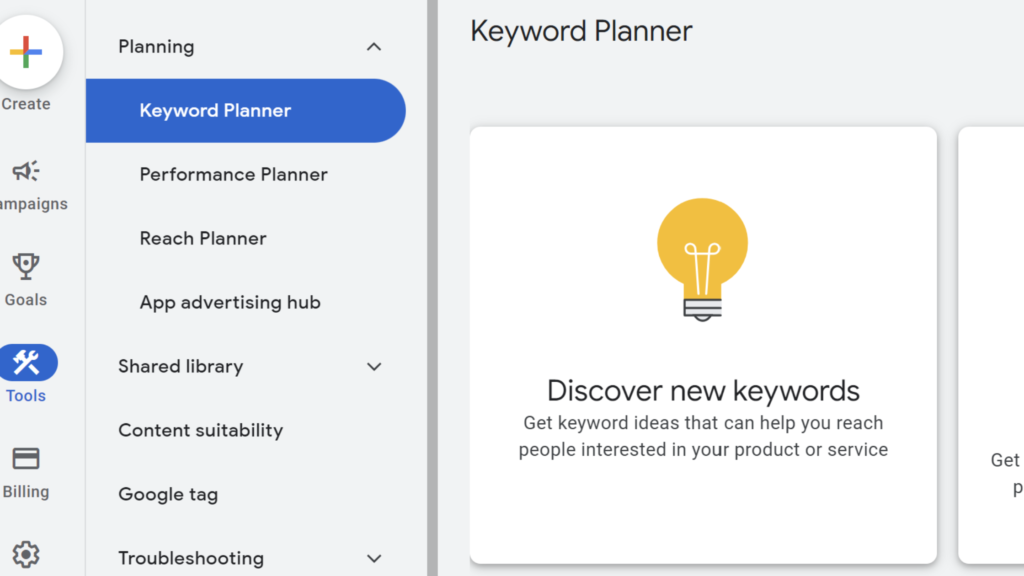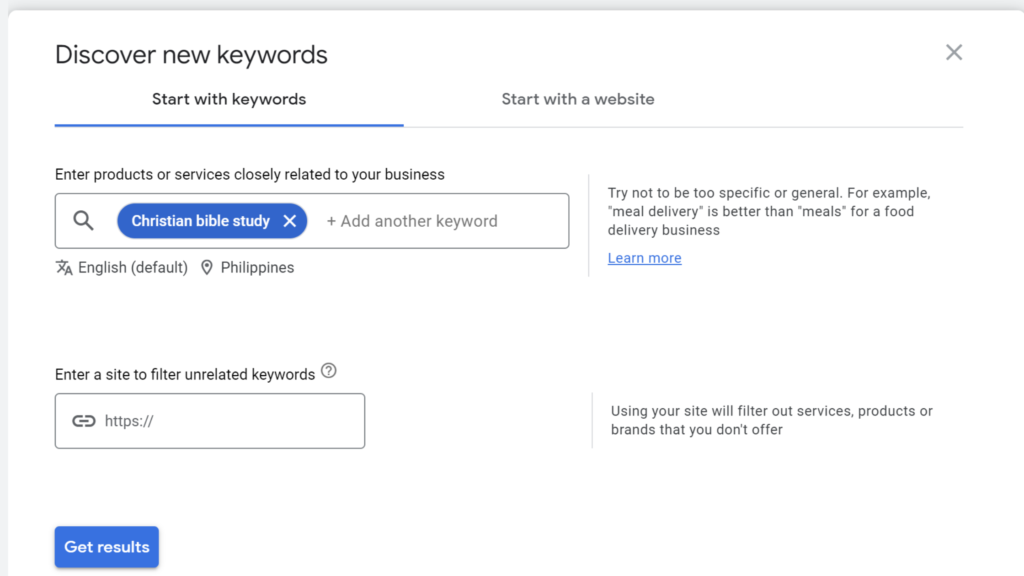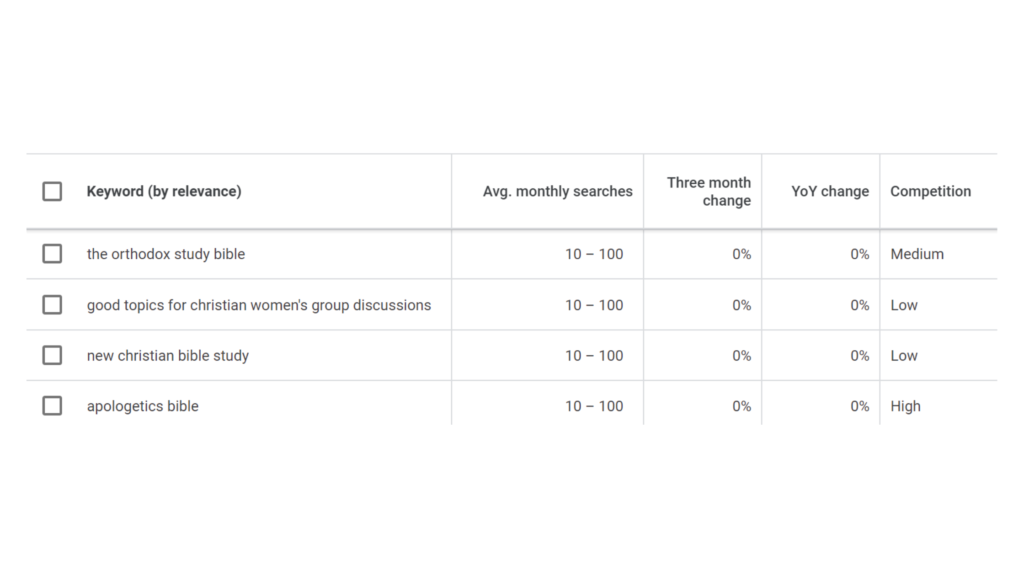Search engine optimization (SEO) is an important part of running a Christian blog. Through it, the blog gets more traffic and widens its reach. One of its major components is keyword research. In this post, we will delve into it. We will discuss in-depth how to do keyword research for Christian blog, walking you through the step-by-step process that you can apply now.
Importance of Keyword Research
In this section, we’ll discuss what exactly keyword research is together with its importance for Christian blogs and other blog niches in general. Let’s get started!
Keyword research is a process of identifying relevant keywords and phrases your target audience searches.
With considerations such as competition and search volume, you’ll be able to choose keywords that you will use in your content.
This will optimize your blog and increase your chances of ranking in any search engine.
From choosing a niche, and a blog name, to creating content, keyword research is a must.
Without it, you risk creating content that is not discoverable through the web.
However, with the right keyword research strategy in place, your Christian blog has the potential to reach more people and make a significant impact.
Tools and Techniques
Here are some of the tools and techniques available to help you identify the best keywords and phrases to target:
Keyword Planner
One of the most popular and effective tools for keyword research is Google’s Keyword Planner. This provides valuable insights into the search terms and phrases that your audience is using to find Christian content.
To use the Keyword Planner, simply enter a topic related to your blog and view the suggested keyword ideas and search volumes. You can then filter and refine your results based on factors such as location and language.
It is the best tool when you are just starting a Christian blog. Aside from it is from Google itself (it has all the data), it is also free!
Competitor Analysis
Another useful technique for Christian blog keyword research is to analyze your competitors’ content and identify the keywords and phrases they are targeting. This will help you understand the strategies that are working in your niche and give you valuable insights into potential opportunities.
You can use tools such as Ubersuggest, SEMrush, or Ahrefs to analyze your competitors’ content and identify their top-performing keywords. You can then use these keywords as a starting point for your own keyword strategy.
Search Trends
Keeping up with search trends is essential for staying ahead of the game in Christian blog SEO. By understanding the topics and keywords that are trending in your niche, you can create timely and relevant content that your audience can relate to.
You can use tools like Google Trends or BuzzSumo to identify the latest search trends and popular topics in your niche. You can also use social media platforms such as Facebook, Twitter, Instagram, YouTube, and Pinterest to check what is currently trending. By incorporating these keywords and topics into your content strategy, you can attract more readers and boost your search visibility.
Niche Keywords
Before choosing keywords, make sure that you already have your niche. The purpose of choosing a niche is to establish a topical authority. By using keywords within your niche, you are giving Google and other search engines a signal that you are an expert in that particular area. Therefore, giving you authority, and ranking you on top.
To identify niche keywords for your Christian blog, consider the topics and themes that are relevant to your audience. For example, if your target audience is interested in Christian parenting, you could target niche keywords such as “Christian parenting tips,” “Christian family values,” or “raising Christian children.”
Another useful technique for identifying niche keywords is to analyze the search terms your audience uses to describe your blog’s topic. You can find them through Social media platforms, forums, and online communities.
| Benefits of targeting niche keywords: | How to target niche keywords effectively: |
|---|---|
| – Higher search relevance – Increased visibility among your target audience – Less competition | – Use long-tail keywords that are specific to your niche – Focus on addressing your audience’s pain points and interests – Research your competition to identify gaps and opportunities |
How to do Keyword Research
Now that you have a solid understanding of keyword research, it’s time to do keyword research that works.
Here are the steps to strategic keyword research:
- Generate a list of potential keywords: Utilize keyword research tools such as Google Keyword Planner to generate a list of potential keywords based on your blog’s content and target audience. Consider both short-tail and long-tail keywords, and prioritize those that have high search volume and low competition.
- Analyze keyword competitiveness: Once you have your list of potential keywords, analyze their competitiveness using tools such as Moz Keyword Explorer, Ubersuggest, or SEMrush. Look for keywords with a high search volume and low competition, as these are more likely to result in higher search rankings for your blog.
- Incorporate keywords strategically: Once you’ve identified your target keywords, incorporate them strategically into your blog content. Avoid keyword stuffing (using keywords multiple times and not naturally), but aim to naturally include your target keywords in titles, headings, meta descriptions, and throughout your blog posts.
- Include variations of your keywords: To broaden your keyword strategy, include variations of your target keywords throughout your blog content. This can include synonyms, related phrases, and long-tail variations of your primary keywords. This will help your site rank for different keywords with the same search intent.
- Regularly review and update your strategy: As your blog and target audience evolve, regularly review and update your keyword strategy. Conduct regular keyword audits and analyze your blog’s performance to ensure that your keyword strategy is optimized for maximum search visibility and engagement.
Sample Keyword Research Process
Here is a visual step-by-step process:
As mentioned, to do keyword research, you need tools. There are tons in the market right now but one I can recommend especially for the starters, is Google Keyword Planner.
Create a Google Keyword Planner Account.

After signing in, click “Discover New Keywords”.

Type the keyword you want to target, for this example, let’s use “Christian Bible Study”, then click Get results.

It will then give you a list of keywords with different search intent.

The considerations you should look for are the Monthly Searches and Competition.
For this example, all keywords have the same search volume which is 10-100, however, the competition is low on long-tail keywords “Good topics for Christian women’s group discussions” and New Christian Bible Study. These keywords have a high chance of ranking on top of search engines.
After determining the keywords, you can incorporate them into your content.
| Tip | Don’t overstuff your content with keywords! Search engines can detect keyword stuffing and penalize your blog’s ranking. Instead, focus on incorporating keywords naturally into your content and ensuring it flows seamlessly. |
|---|
By following these steps, you can create content that will show on the top pages of search engines.
Measuring Keyword Performance
Keyword research does not end with using them all over your website. It is also imperative to track and analyze your Christian blog’s keyword ranking and performance to evaluate the effectiveness of your optimization efforts.
Here are some tools and techniques you can use:
| Tool/Technique | Description |
|---|---|
| Google Search Console | Google Search Console provides valuable insights into your blog’s search visibility, including keyword ranking, click-through rates, and impressions. You can use this information to optimize your blog for better performance. Furthermore, it produces additional keywords by collecting search inquiries from users. |
| Keyword Rank Checker | Keyword Rank Checker is a tool that tracks your blog’s keyword ranking across major search engines, including Google, Bing, and Yahoo. This tool provides a comprehensive overview of your blog’s search visibility and helps you identify areas for improvement. |
| Google Analytics | Google Analytics is a powerful tool for monitoring your blog’s performance, including traffic sources, bounce rates, and engagement metrics. It provides what type of content works and what does not. You can use this data to optimize your content strategy and improve your blog’s search visibility. |
| Keyword Planner | Keyword Planner is a free tool provided by Google that helps you identify relevant keywords and analyze their search volume, competition, and potential performance. You can use this tool to refine your keyword strategy and optimize your blog content. |
All these tools are useful, but what I highly recommend for starters are Google Analytics and Google Search Console. These will give you enough data to plan your next move for your website.
Conclusion
Keyword research will make or break your Christian blog. With the right strategies, it will help your blog increase search engine visibility, gaining more traffic. The process seems challenging but it is actually simple and fun.
Following the step-by-step guide above will help you grow your Christian blog. From researching, using, and up to tracking these keywords, this no-nonsense process will positively impact your website.
Consider it as essential and it will surely, in no time, make your Christian blog a success. Reaching more people, inspiring them to live a Christian life.

